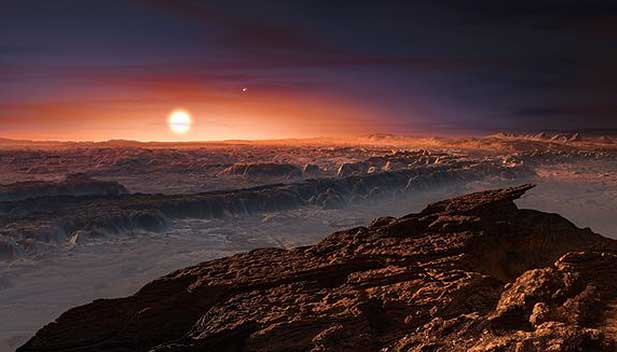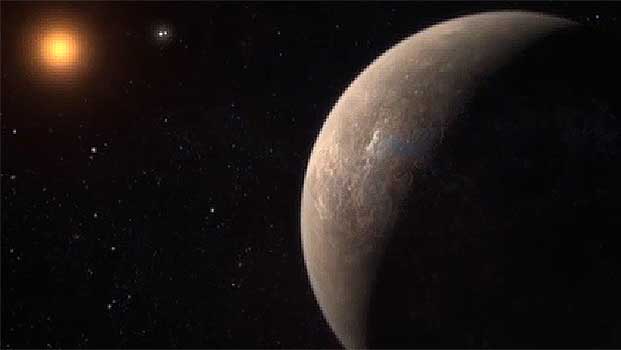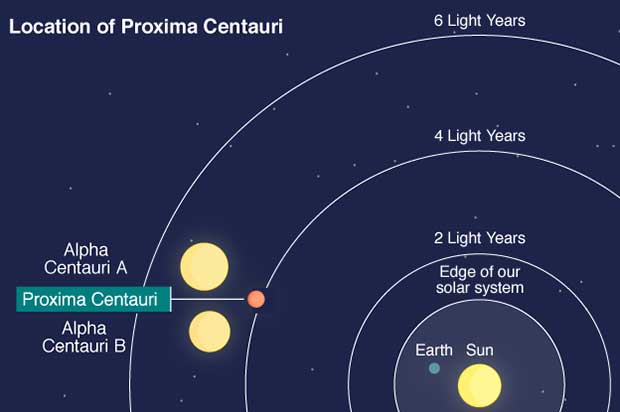Advertisement
Science & Tech
Scientists: Earth-Like Star Orbiting Proxima Centauri ‘Candidate’ for Life
By
Jason Owen
2 min read
- # alien life
- # aliens
- # Earth-like planet
Advertisement - Continue reading below


Does life outside our solar system exist? Scientists believe they are one step closer to being able to answer that question.
On Wednesday, researchers announced at the European Southern Observatory and in the journal Nature that an Earth-sized planet orbits the red dwarf planet Proxima Centauri, which is our sun’s “closest stellar neighbor.” The exo-planet, “Proxima b,” is noteworthy in that its orbit around Proxima Centauri was discovered to be “temperate,” meaning it could sustain life.
From the BBC:
“Scientists say their investigations of the closest star, Proxima Centauri, show it to have an Earth-sized planet orbiting about it.
“What is more, this rocky globe is moving in a zone that would make liquid water on its surface a possibility.
“Proxima is 40 trillion km away and would take a spacecraft using current technology thousands of years to reach.”
Now that scientists know the planet is a good candidate to support life, renewed focus on the small exo-planet could jumpstart new advances to study the discovery.
Proxima Centauri and Proxima b are closer together than Earth and our sun, but Proxima Centauri is also much smaller than our sun, so scientists believe the distance relative to the size of the red dwarf star are sufficient to support life.

“This planet is at 5% of the Earth’s distance from the Sun. However, Proxima is 1,000 times fainter than the Sun. So the flux – the energy – reaching Proxima b is about 70% of what the Earth receives. It’s like taking Earth a bit further away, but it’s comparable.” explained Dr. Anglada-Escudé to the BBC.
USA Today notes Proxima b is rocky like Earth, compared with Jupiter, which is a huge ball of gas. However, the planet’s atmosphere must contain the right amount of greenhouse gases to keep water in its liquid state.
Based on the excitement of the academic community after the announcement, this is indeed one of the biggest discoveries in the search for life outside our solar system in a long time, if not ever.
“I think it’s the most important exoplanet discovery there will ever be – how can you ever trump something that could be habitable orbiting around the very closest star to the Sun?” Dr. Carole Haswell from the Open University told the BBC.
Advertisement - Continue reading below












